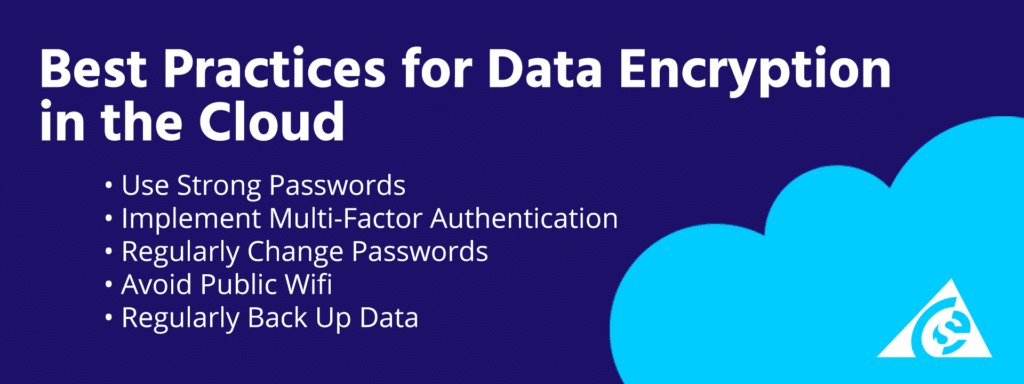As more businesses migrate applications and their data to the cloud, safety and encryption have become more important than ever. Encryption is a crucial part of data security in the cloud. When you encrypt your data, it becomes indecipherable to anyone who doesn’t possess the key to read it. In this post, we’ll discuss the benefits of data encryption in the cloud, best practices, and an overview of cloud providers’ encryption features.
Benefits of Data Encryption in the Cloud
Data encryption provides an extra layer of security for your sensitive data while in transit and at rest. Transmitting highly sensitive data across the internet is a dangerous practice. Encryption algorithms ensure that your data is unreadable by anyone. This includes the Internet Service Provider sitting between you and your destination as well as unauthorized personnel, cybercriminals, and even the cloud provider themselves. Even if your data is intercepted by an unauthorized third party, encryption of the data makes it impossible to read when utilizing modern cipher suites.
Another significant benefit of data encryption in the cloud is that it follows regulatory compliance standards, such as HIPAA, PCI DSS, GDPR, and more. Encrypted data ensures that your business complies with legislative requirements, particularly in the healthcare, finance, and retail industries.
Best Practices for Data Encryption in the Cloud
While cloud providers typically provide encryption options, it’s essential to follow best practices to ensure data protection. First, implement strong password policies and multi-factor authentication to prevent unauthorized access attempts. Second, train your employees to follow secure practices, such as regularly changing passwords and avoiding public Wi-Fi when accessing cloud data or ecosystems. Third, regularly back up your data on a consistent schedule. If anything goes wrong with your cloud storage, you won’t permanently lose your information and can perform disaster recovery processes to restore your data. Additionally, be sure to apply necessary updates and patches to any software that interacts with your secure data.
Overview of Cloud Providers’ Encryption Features
As cloud computing becomes increasingly prevalent in businesses, most cloud providers offer encryption options. Cloud providers like Amazon Web Services (AWS), Google Cloud Platform (GCP), and Microsoft Azure utilize a combination of data encryption-in-transit (encrypted when traveling from the cloud provider to the cloud user) and data encryption-at-rest (encryption while stored in the cloud provider’s data center). Finally, users can even ensure the data cannot be accessed by the cloud provider itself! By using Customer Managed Keys rather than keys provided by your cloud provider, you can guarantee that only those authorized to view the information can do so.
Utilize Encryption to Protect Your Business
Data encryption is an essential aspect of maintaining proper security in the cloud. Benefits include reduced chances of data breaches, compliance with regulatory standards and governance, protection from unauthorized access and possible data loss. Implementing best practices, such maintaining up to date software, training employees, MFA authentication, and regular data backups are essential for the best experience in the cloud.
Need help getting started? Contact CSE Software today for all your Cloud Security and Migration needs.
Don’t forget to share this post!
[social_buttons facebook=”true” twitter=”true” linkedin=”true” style=”default”]



